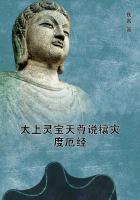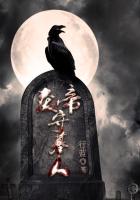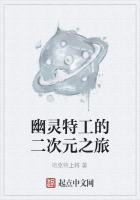The second danger was that Philip might have succeeded to the crown of his native country. This did not happen; but it might have happened; and at one time it seemed very likely to happen. A sickly child alone stood between the King of Spain and the heritage of Lewis the Fourteenth. Philip, it is true, solemnly renounced his claim to the French crown. But the manner in which he had obtained possession of the Spanish crown had proved the inefficacy of such renunciations. The French lawyers declared Philip's renunciation null, as being inconsistent with the fundamental law of the realm. The French people would probably have sided with him whom they would have considered as the rightful heir. Saint Simon, though much less zealous for hereditary monarchy than most of his countrymen, and though strongly attached to the Regent, declared, in the presence of that prince, that he never would support the claims of the House of Orleans against those of the King of Spain. "If such," he said, "be my feelings, what must be the feelings of others?"
Bolingbroke, it is certain, was fully convinced that the renunciation was worth no more than the paper on which it was written, and demanded it only for the purpose of blinding the English Parliament and people.
Yet, though it was at one time probable that the posterity of the Duke of Burgundy would become extinct, and though it is almost certain that, if the posterity of the Duke of Burgundy had become extinct, Philip would have successfully preferred his claim to the crown of France, we still defend the principle of the Treaty of Utrecht. In the first place, Charles had, soon after the battle of Villa-Viciosa, inherited, by the death of his elder brother, all the dominions of the House of Austria. Surely, if to these dominions he had added the whole monarchy of Spain, the balance of power would have been seriously endangered. The union of the Austrian dominions and Spain would not, it is true, have been so alarming an event as the union of France and Spain. But Charles was actually Emperor. Philip was not, and never might be, King of France. The certainty of the less evil might well be set against the chance of the greater evil.
But, in fact, we do not believe that Spain would long have remained under the government either of an Emperor or of a King of France. The character of the Spanish people was a better security to the nations of Europe than any will, any instrument of renunciation, or any treaty. The same energy which the people of Castile had put forth when Madrid was occupied by the Allied armies, they would have again put forth as soon as it appeared that their country was about to become a French province. Though they were no longer masters abroad, they were by no means disposed to see foreigners set over them at home. If Philip had attempted to govern Spain by mandates from Versailles, a second Grand Alliance would easily have effected what the first had failed to accomplish. The Spanish nation would have rallied against him as zealously as it had before rallied round him. And of this he seems to have been fully aware. For many years the favourite hope of his heart was that he might ascend the throne of his grandfather; but he seems never to have thought it possible that he could reign at once in the country of his adoption and in the country of his birth.
These were the dangers of the peace; and they seem to us to be of no very formidable kind. Against these dangers are to be set off the evils of war and the risk of failure. The evils of the war, the waste of life, the suspension of trade, the expenditure of wealth, the accumulation of debt, require no illustration. The chances of failure it is difficult at this distance of time to calculate with accuracy. But we think that an estimate approximating to the truth may, without much difficulty, be formed. The Allies had been victorious in Germany, Italy, and Flanders. It was by no means improbable that they might fight their way into the very heart of France. But at no time since the commencement of the war had their prospects been so dark in that country which was the very object of the struggle. In Spain they held only a few square leagues. The temper of the great majority of the nation was decidedly hostile to them. If they had persisted, if they had obtained success equal to their highest expectations, if they had gained a series of victories as splendid as those of Blenheim and Ramilies, if Paris had fallen, if Lewis had been a prisoner, we still doubt whether they would have accomplished their object. They would still have had to carry on interminable hostilities against the whole population of a country which affords peculiar facilities to irregular warfare, and in which invading armies suffer more from famine than from the sword.
We are, therefore, for the peace of Utrecht. We are indeed no admirers of the statesmen who concluded that peace. Harley, we believe, was a solemn trifler, St. John a brilliant knave. The great body of their followers consisted of the country clergy and the country gentry; two classes of men who were then inferior in intelligence to decent shopkeepers or farmers of our time. Parson Barnabas, Parson Trulliber, Sir Wilful Witwould, Sir Francis Wronghead, Squire Western, Squire Sullen, such were the people who composed the main strength of the Tory party during the sixty years which followed the Revolution. It is true that the means by which the Tories came into power in 1710 were most disreputable.
It is true that the manner in which they used their power was often unjust and cruel. It is true that, in order to bring about their favourite project of peace, they resorted to slander and deception, without the slightest scruple. It is true that they passed off on the British nation a renunciation which they knew to be invalid. It is true that they gave up the Catalans to the vengeance of Philip, in a manner inconsistent with humanity and national honour. But on the great question of Peace or War, we cannot but think that, though their motives may have been selfish and malevolent, their decision was beneficial to the State.
But we have already exceeded our limits. It remains only for us to bid Lord Mahon heartily farewell, and to assure him that, whatever dislike we may feel for his political opinions, we shall always meet him with pleasure on the neutral ground of literature.















